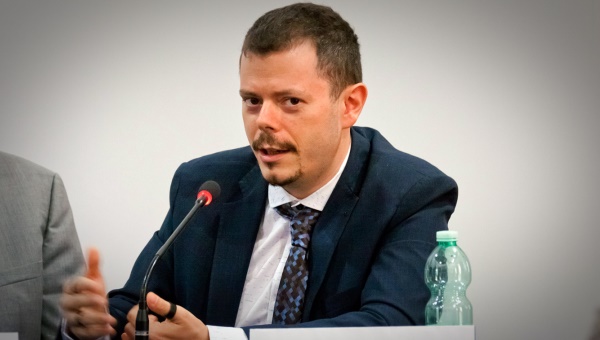Professor Walter Arrighetti Invited to Film Preservation Workshop
JCU Cybersecurity Professor Walter Arrighetti was recently invited to give a presentation at the international workshop on Film Preservation with IMF (Interoperable Master Format), at the Eye Film Museum, in Amsterdam. IMF is a new Computer Science system for professional video processing and archival, a file-based framework for the exchange and processing of multiple content versions of the same high-quality finished work destined for distribution channels worldwide. Among the audience were lecturers, university computer scientists, major film studios and broadcasters representatives.
Both 35mm movies and digital films are the result of a long and expensive creative process. Whether they are milestone in the history of cinema, or mass-distribution blockbusters, it is worth preserving them for many different reasons. However, film projectors are soon to disappear, and celluloid from legacy films is going to chemically decay. Even content shot and stored in digital vaults will eventually suffer from “digital rot“, as future technologies might not understand current data encodings.
At the same time, a file format suited for definitely binding the digital (or digitized) content along with its technical and historical metadata, is still lacking. Professor Walter Arrighetti, speaking at 2019’s biggest workshop on digital film preservation, proposed SMPTE’s Interoperable Master Format (IMF) as one possible solution to both problems.
IMF is an open-source file-packaging format where the digital audio, video and subtitle pieces of a film are componentized in different files in a way that current and future software will always be able to playback. IMF packages can also be incrementally modified as later or localized versions of the same content are created; thus, they are stored in digital libraries with a minimally incremental storage footprint. Most importantly, different kinds of metadata may be included in an IMF package.
Examples of such metadata non-exhaustively include: end titles (crew), synopsis, scene-based list of actors’ vs characters’ names; scene-based description of cinematography (lenses, shooting parameters, color-grading), animation and VFX information; frame-based geometric description of film characteristics and defects; frame-based original information from the camera raw files (e.g. timecode, clip names, time-of-day, unique frame IDs,etc.). IMF and its many derived formats, like Academy Digital Source Master (ADSM), are really future-proofing audiovisual content so that it can be completely and reliably stored in film archives for later reuse or commercial exploits.






